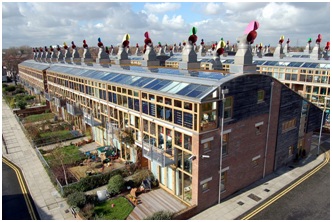One of the key things to understand about Brexit’s impact on the UK renewables industry is that energy policy has always been made in the UK, not in the EU. As the UK was an early liberaliser of its energy markets – electricity was denationalised in 1989 – it had a lot of influence on subsequent EU policy.

However, as those involved in the provision of solar panels in Northern Ireland know, the UK has recently slashed its subsidies for renewable energy. Electricity Market Reform is now the order of the day and the renewables sector is subsidised via the Contracts for Difference scheme which compensates suppliers.
Renewable Energy Targets No Longer Set in Europe
The referendum decision to leave the EU will free the UK government from renewable energy goals set by the EU. Physical energy co-operation in the EU is easier because of land borders, so Europe is likely to continue its development of an internal Europe-wide energy market. Meanwhile, Britain may benefit from the removal of tariffs on non-EU manufactured solar panels. This would allow cheap imports from places such as China, and could help spread the use of solar panels by reducing their price.
However it’s not known whether the market for solar panels in Northern Ireland would increase as a result.
Closure of DECC Seen as a Bad Sign
However, Theresa May’s decision to close the Department for Energy and Climate Change and pull its functions into a Department for Business, Energy and Industrial Strategy has led to criticism from many. The only bright spot as far as they were concerned, was the appointment of Greg Clark as secretary of state at the new department, which was welcomed by the Renewable Energy Association.
The appointment of Andrea Leadsom as Environment Secretary has not been taken as a good sign for the renewables industry, with widespread suspicion that she is a climate change sceptic.
On the other hand, some voices in the solar industry – whilst lamenting the closure of DECC – have conceded that business, energy and industrial strategy might all benefit from a more joined-up approach to the potentially huge solar market. It will be some time before the impacts of Brexit on renewables becomes clear. Until then, one thing is certain, and that’s more uncertainty.
